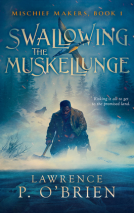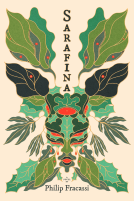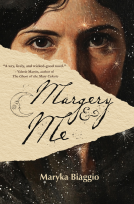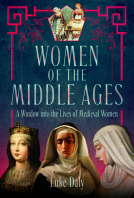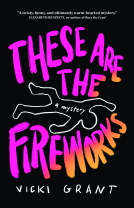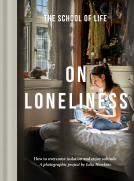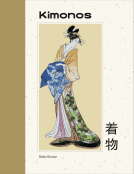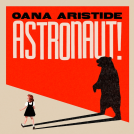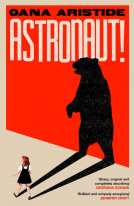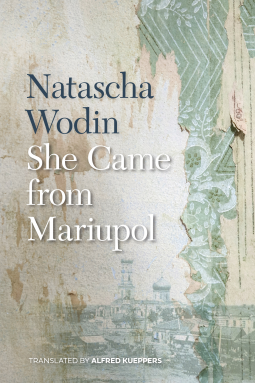
She Came from Mariupol
by Natascha Wodin
This title was previously available on NetGalley and is now archived.
Send NetGalley books directly to your Kindle or Kindle app
1
To read on a Kindle or Kindle app, please add kindle@netgalley.com as an approved email address to receive files in your Amazon account. Click here for step-by-step instructions.
2
Also find your Kindle email address within your Amazon account, and enter it here.
Pub Date 1 Apr 2022 | Archive Date 1 Apr 2022
Talking about this book? Use #SheCamefromMariupol #NetGalley. More hashtag tips!
Description
Advance Praise
“The tragic story of a destiny is transformed into a voyage back to Ukraine and to the multiethnic city of Mariupol on the Sea of Azov, where Jews and Russians, Poles and Turks, Italians and Germans lived side by side. Without hesitation or fear, with the dogged single-mindedness of a detective, Wodin retraces her own dramatic experiences through the desolate landscape of desperate decades, in the search of this complicated ancestral network.”—From La Stampa (Turin, Italy)
Available Editions
| EDITION | Other Format |
| ISBN | 9781611864236 |
| PRICE | $24.95 (USD) |
| PAGES | 272 |
Average rating from 29 members
Featured Reviews
 Mariya B, Reviewer
Mariya B, Reviewer
I finished this book with the very interesting knowledge of WW2.
I never hear about labor camps around Leipzig,and DP camp near Nuremberg…
What a fascinating and very dramatic story ..
Thanks NetGalley for letting read this book.
 Andrew B, Reviewer
Andrew B, Reviewer
First off, I loved this book; I was surprised, too, how much I loved it, not really expecting, when I started, to get swept along in this amazing narrative. I guess I could just say “What a surprise !! I love this book so much !!” and be done.
But why did I love it?
The author is an adept at drawing out her characters in a few strokes; I felt as if I knew all the people sweeping across the years as her search for answers brought more and more surprises at every turn.
A very moving, heart-wrenching look back from a young girl, no longer young, seeking (as most of us do) some clarity about her family history, the author uncovers an incredible story, filled with a Tolstoyan tapestry of characters, a family, much to her amazement, of wealthy nobles whose lives were turned upside down by, first, the Russian Revolution and later World War II.
This book was a lot of things: a haunting memoir of her search, a page turning detective story, a look back at the atrocities of the early years of Soviet Rule, and a heart-breaking (and infuriating) look at the fate of forced laborers during the Third Reich.
I felt such sadness for the author’s mother, a beautiful young woman whose life was filled with tragedy, as well as for the fates of her aunts and uncles. Once I started, I couldn’t stop; I needed to know what was going to happen.
This book works on multiple levels and I highly recommend it.
I was only twenty-three and in a new city when the lady from across the street came to the door. She came every morning that summer. She brought us cherry dumplings–with cherry pits still intact. She asked me to sew her a dress with a high neckline to hide her creased neck. Nadia told me a few things about her life, but I was too young and ignorant to understand the life behind those few facts.
Nadia was twenty when she volunteered to stand in for her father as a worker on a Nazi farm, a work camp. She believed they sterilized her, because she was never able to have a child. After the war, she met her husband John and they were lucky to be selected to immigrate. They could go to Canada, Brazil, or New Jersey. They came to America.
We only lived in that place for two years and I often wondered about Nadia over the years. Reading She Came From Mariupol, I kept thinking about her. Natasha Wodin’s story of her mother’s life gave me insight into what Nadia, born in the Ukraine, had experienced.
She Came From Mariupol is Natascha Wodin’s journey to understand the mother who killed herself when she was ten years old. Evgenia Yakovlevna, born in 1920 in Mariupol, had been beautiful. And, she was desperately unhappy and unable to cope with life. Wodin hoped to learn about her mother’s life and her family thorough genealogical research online.
I once heard my mother play the piano–something so unspeakably beautiful and sad, like nothing I had ever heard before. On the way home, my mother held my hand and said it was the “Raindrop” prelude by Frederic Chopin…
from She Came From Mariupol by Natascha Wodin
Wodin remembered stories her mother had told her, and she remembered the years after the war, hiding in a shed so the family wasn’t sent to the violence of the displaced persons camp. If they were returned to Russia, they would have been considered traitors and sent to Siberia, or shot. In school, Wodin was shunned as a Russian. She was always hungry. Her father was sullen and angry. Her mother depressed, malnourished, suffering from PTSD.
I only knew that I belonged to a type of human refuse, to some sort of garbage that was left over from the war.
from She Came From Mariupol by Natascha Wodin
The first part of the book relates her personal memories and the stories she recalls and her genealogical research. In the second part, Wodin narrates her aunt’s sister’s story as told in a journal she wrote in late life, her life of privilege in the international city of Mariupol, her time in Germany, and as a displaced person in postwar Germany. Wodin’s mother was born after the family’s financial losses, smack in the middle of turmoil and violence that continued throughout her life. Wodin’s parents were deported to Germany in 1944 as slave labor in Germany’s factories so the German men were freed up for military service.
Wodin was shocked by the atrocities her family endured, wondering how we could have forgotten. The continual violence as the Red, White, and Black armies battled across Russia. The suffering at the forced labor camps, the slaves dispensable and mistreated, starving and ill, working twelve hour days. The millions of displaced persons after the slave workers were freed, hated if they stayed in Germany, hated if they returned home, considered collaborators with the Nazis. Viewed with suspicion by their American and British liberators.
I was riveted by Wodin’s narrative, appalled, and my heart breaking.
I received a free egalley from the publisher through NetGalley. My review is fair and unbiased.
This magnificent memoir explodes upon the reader, revealing the lives of the author's ancestors from pre-Revolutionary times in the Russian empire when they were wealthy merchants in Mariupol, through the First World War, the Russian Revolution, the Ukrainian Revolution, the Holodomor, Stalin terror years, Siberian exile, World War II occupied Ukraine and also the Nazi slave raids where Ukrainians were captured and shipped to the Reich where they were worked and starved to death by the millions. The memoir begins and ends with the author as a beaten and downtrodden refugee in Germany.
This is a vast story to tell and Wodin's method is akin to smashing open one egg at a time in a big nest of them. Any one of the many historical eras had enough experience for an entire book (on a few occasions, a single paragraph could have made a book) and so while a vast history of a family is uncovered, I kept on wanting more detail in each of the eras.
Kudos to Natascha Wodin for writing about her family's experiences during so many times of Soviet and German history that have been propagandized and hidden.
#netgalley #nataschawodin
 Reviewer 492564
Reviewer 492564
A detailed and personal account of the author's search to learn more about her mother, an enigmatic figure whose traumatic experiences during WWII colored the rest of her life and the lives of her children. With only a scant bit of information, Wodin begins her quest online, connecting with other family history researchers, genealogists, survivors, and more. Each foray into the life of her mother's immediate family reveals more heartbreak and suffering, but these are stories worth telling and remembering, including details of the Nazi's forced work camps in which residents of Eastern Europe were sent to Germany to work; the looting and violence that occurred during the chaos of the Russian Revolution; and the coping mechanisms victims found--or couldn't find--in the aftermath. At times the writing is a bit clunky, and sometimes the side-trips aren't well integrated into the primary purpose of the book, but overall it is a testament to the need for historical records and documents and evidence, and to the author's determination to learn about her family.
 Maria Grazia B, Book Trade Professional
Maria Grazia B, Book Trade Professional
Searching for the past of her mother, who committed suicide when she was still a child, and of whom she knows practically only the place of origin, Mariupol, in Ukraine, the author discovers, and tells, an incredible story of social transformation, war and emigration, between the Soviet revolution and the Nazi invasion. The number of events, twists and turns, and pain, collected in this book is decidedly impressive, and the writing, simple and not at all emphatic, only increases the impression it makes on the reader a hundredfold.
A book to be read, absolutely.
 Abby S, Reviewer
Abby S, Reviewer
Eye opening informative,I learned so much about ww2llabor camps.Emotional moving the authors writing brings us right in to heart wrenching moments brings them alive.A truly excellent credal.#netgalley #uofmichigan
<b>“I had long given up looking for [my mother]. She had been born more than ninety years ago and she only lived for thirty-six years. Not just any years, but the years of the civil war, the purges, and the famines in the Soviet Union, the years of the Second World War and National Socialism. She had been caught in the shredder of two dictatorships, first under Stalin in Ukraine, then under Hitler in Germany. It was an illusion to think that, decades later, I could find a trace of a young woman in the ocean of forgotten victims, about whom I knew little more than her name.”</b>
I don't think I ever read a more touching, breath-taking, fascinating and ultimately deeply sad memoir than this one and I am very happy it has been translated into English so that it can reach a wider audience. Natascha Wodin´s mother killed herself when she was 10 years old, somewhere in the 1950s. Thanks to a search started on the internet she slowly but certainly manages to paint a picture of her mother´s life, first as a girl in the Ukrainian city of Mariupol on the Sea of Azov born into a well-to-do family of exotic Greek and Italian descent, and later as a married woman to Natascha´s father and being deported to Germany for forced labour. She also uncovers the lives of various colourful family members all of them caught up in historical turmoil.
The writing is outstanding, not at all dramatic, letting the incredible facts speak for themselves.
This book was not only eye-opening to the deadly struggles of Ukrainian people in the twentieth-century, but a heartbreaking odyssey of one woman's search for familial meaning. I found the historical and personal journey to be educational and important to better understanding both the purges in Ukraine but the forced labor of Nazi Germany.
To follow a family, specific the author's mother through some of the hardest times of modern humanity was hard but necessary. To see what post-World War 2/Nazi Germany was like for foreigners of the East was new to me and I appreciate learning that the end of the war did not mean the end of fighting for one's life and right as a human.
I did, however, find the book's structure to be exhaustive. To have only four chapters, one being over 100 pages, was a lot to read. I wish it had been broken up so I could fully embrace all the information in a sitting. Overall, this is important read if you want to learn a personal perspective of Ukraine/Russia/Germany area the 1900s.
 Guusje M, Reviewer
Guusje M, Reviewer
She Came From Mariupol is a memoir by Natasha Wodin. Her Mother committed sucide when she was 8 and the memoir is an attempt to come to terms with her mother’s demons and her secret life. Wodin was born in a German Displaced Persons camp after WWII, though her family is Russian
The family were once upper class Russian Ukrainians who of course fell from grace after the Revolution. They then had to endure Lenin, Stalin and a horrific famine (the descriptions are harrowing). Then come the Nazi’s and her mother is sent to Germany as a forced laborer.
The book covers an often overlooked aspect of WWII – the citizens of the Nazi conquered countries who were forcibly taken to Germany housed in labor camps and made to work as domestic servants and in the farms and factories under inhuman conditions. Once the War ends they find themselves stranded in German, unable to return to their homeland. They are persona non grata is Germany too, since the Germans have deep hatred and distrust anything and anyone Russian. The family endures miserable conditions in the DP camps and in the housing that the Germans eventually build. Wodin is horribly bullied & beaten both at home and at school.
It’s a story of survival under unimaginable circumstances. My only quibble is that the book needed a bit of editing. A good portion of books early chapters are about her Mother’s very extended family and per-war history.
It’s interesting but I kept wondering when the actual story would begin.
Many thanks for NetGalley for providing an ARC in return for an honest review.
A true story of the author’s family. Difficult to read at times, however very compelling and loaded with history. Bravo!
Many thanks to the author, #nataschawodin, #netgalley, and #michiganstateuniversitypress for the opportunity to read this book filled with historical treasures.
 Susan F, Reviewer
Susan F, Reviewer
I don't know if I can find words to review this book. It isn't just a book. This is memoir, biography and an historical record. It's profound and heartbreaking and at times so appalling I am once again ashamed of parts of the human race. As I think of the people of the Ukraine right now, in 2022, I can not imagine how its' citizens feel and who of them may be thinking back to the days of World War II and the days of recovery afterwards.
Author Natascha Wodin decided to type her mother's name into a search engine. That act in and of itself is telling and so sad. She knew so little about the woman who had brought her into the world and left her at ten years old when she walked into water and drowned herself in Germany.
Natascha eventually found fragments here and there. Her search is described with candor in the first part of the book, "She Came from Mariupol." My draw to even read this was the labor camp connection. For years I read everything possible so I could try to understand the Holocaust. Her parents had been tricked or taken to Germany from the Ukraine to be laborers for the Reich during the war. The author was able to learn about ancestors she wasn't aware of. This part of the book was quite interesting to me. I learned new things, some heart-sickening.
In another part of the journey another memoir of sorts is sent to Natascha and she learns more about her family history. (This certainly got me thinking about my own family and how important it is to record things for the generations I leave behind one day.) The words the author read and shares with us is a portion of world history itself. It's also her very own story, answers to some of her questions.
The concluding chapters describe Natascha's early years. Her life, her mother's struggle to carry on after the laborers were "freed" is extremely hard to read. It is such a heartbreaking beginning of one life and ending of another young life.
To me this is a book of historic value and brings that often-spoken phrase about not letting history repeat itself. Sadly, it does and will.
There is a lot in this book, much to try to understand and soak in. It is a hard read. I am glad I read it and to be sure, I will remember some of my reactions for a long time.
I want to thank the author, her translator, the publisher and NetGalley for my copy of the book.
Anyone struggling with depression or suicidal thoughts may find portions of the book disturbing. It is very sad. There is much better hope for help today. Domestic and child abuse also factor in.
I was completely absorbed whole reading this book. I could barely tear myself from it when necessary. It’s a other timely read because the author’s family is centered around Mariupol, Ukraine. She knew just the bare bones about her mother’s story and the book is about jer researching her maternal family. Thanks to an internet angel, Konstantin, she found almost the entire story, in far out of the way places.
She also discovered her father had another family, but was unable to track down any Information.
It’s a riveting read, but very sad and sobering. The last part is about her horrific childhood in Germany and her mother’s death.
Wodin weaves her personal family history within the broader context of the Ukraine, the Soviet Union, WWII, and beyond.
Newly translated into English, this is the captivating, and oftentimes haunting, memoir of Natascha Wodin’s efforts to discover the history of her family. Born in 1945 in Germany in a camp for “displaced persons”, Natascha would have little opportunity to learn about her mother’s past before her unexpected death when Natascha was just ten years old. All she knew was that her parents left their home in Ukraine in the Nazi forced labor program in 1943. Growing up in Germany as an outsider, Natascha never fully understood her Eastern European roots or the horrors that her mother undoubtedly witnessed. Now, she recounts her journey to rediscovering her past, and the stories of millions of others whose lives were uprooted during World War II.
Published in the April 2022 edition of Appleton Monthly Magazine "Great Reads"
 Melissa H, Librarian
Melissa H, Librarian
"She Came from Mariupol" by Natascha Wodin is a poignant and deeply personal memoir that explores themes of identity, memory, and belonging. In this powerful narrative, Wodin delves into her own family history, tracing the life of her mother, who survived the horrors of World War II and its aftermath. At the heart of the book is Wodin's exploration of her mother's journey, from her childhood in the Ukrainian city of Mariupol to her experiences as a forced laborer in Nazi Germany and her struggles to rebuild her life in the aftermath of the war. Wodin paints a vivid and harrowing portrait of the traumas endured by her mother and millions of others during this tumultuous period, while also reflecting on the ways in which these experiences have shaped her own sense of self and identity. In light of the destruction of the city since Wodin's writing, this memoir is particularly timely and haunting.
Natascha Wodin’s "She Came from Mariupol" is a haunting, luminous excavation of memory—part memoir, part detective story, and entirely unforgettable. When Wodin’s mother drowned herself in 1956, she left behind only fragments of a life: a name, a birthplace (Mariupol, Ukraine), and the scars of war. Decades later, Wodin, now in her 70s, begins piecing together her mother’s shattered past, uncovering a family history swallowed by the chaos of the 20th century—Stalin’s purges, Nazi forced labor camps, and the bleak aftermath of displacement.
What unfolds is a tapestry of resilience and ruin. Wodin’s prose, elegantly translated, carries the weight of revelation as she traces her mother’s journey from a once-prosperous Ukrainian family to the brutality of Nazi Germany’s *Ostarbeiter* program. Her life, nearly erased by history, becomes a portal to understanding millions of silenced voices. Wodin’s research (aided by a serendipitous internet forum) unearths astonishing details: an aristocratic lineage, a sister vanished into the Gulag, and the relentless humiliations of postwar Germany, where displaced Eastern Europeans remained pariahs.
The timing of this English translation is achingly poignant. As Mariupol is again reduced to rubble, Wodin’s meditation on loss and identity resonates with unbearable clarity. This isn’t just a personal reckoning; it’s a corrective to historical amnesia, exposing the overlooked horrors endured by Soviet forced laborers.
This is a must-read for anyone drawn to memoirs like "The Hare with Amber Eyes" or the works of W.G. Sebald.
Thank you to NetGalley and Michigan State University Press for the ARC.
